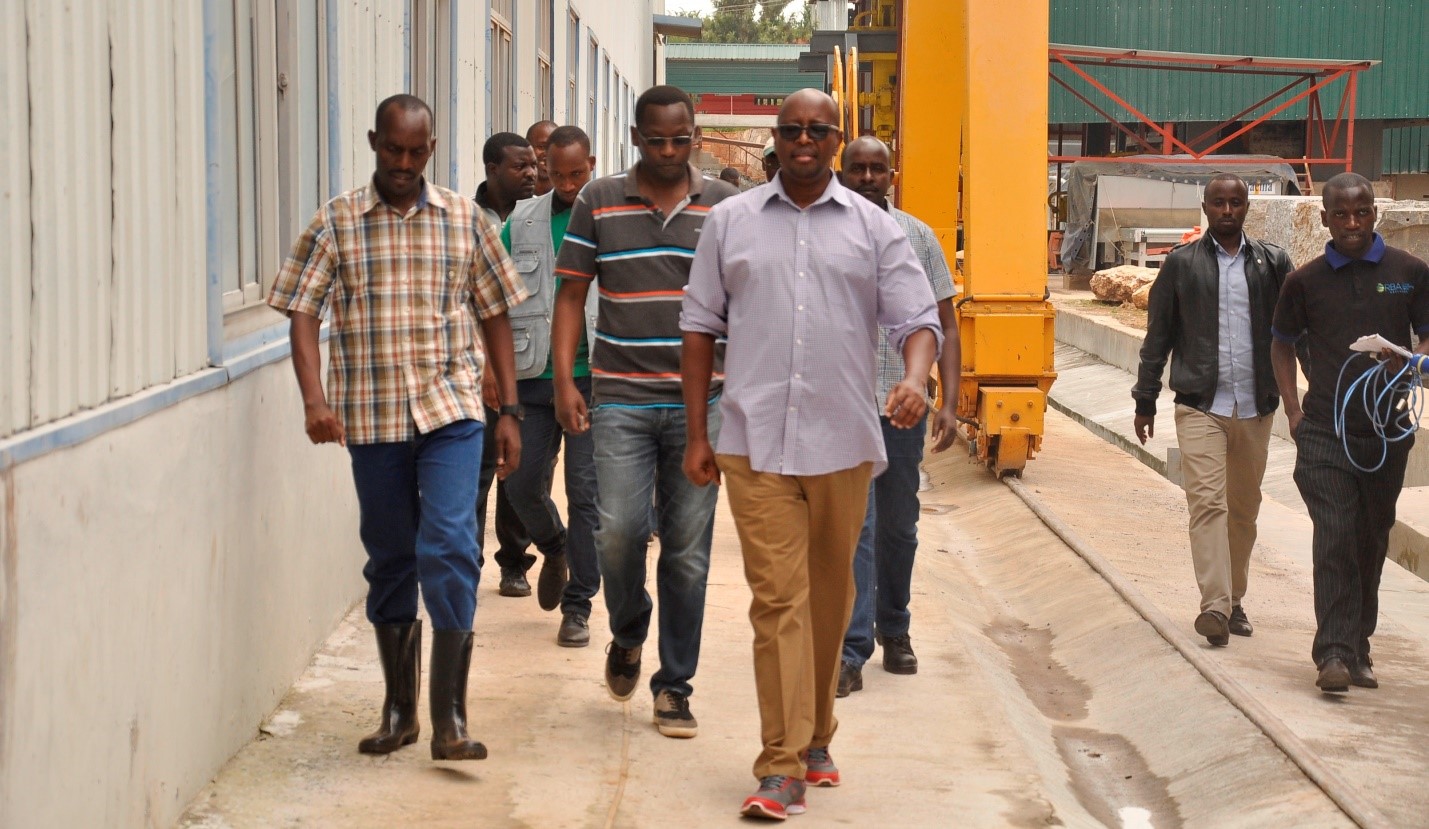Kigali, 30 November 2017- The East African Granite Industries (EAGI) is located in Rutaraka Cell, Nyagatare District, Eastern Province. It was officially launched by H.E Paul Kagame, President of the Republic of Rwanda on 6th July, 2012.
EAGI, the largest granite factory in the region, has a vision to become the leading manufacturer and supplier of affordable and high quality granite products in East Africa. This new company is an exciting competitor to the domestic and regional granite industry. It is dedicated to producing the most durable and authentic stone-building products for local, regional and international markets.
Built on 72 hectares, this modern 12 billion Rwandan Francs granite-processing factory is outfitted with the most sophisticated and environmentally friendly equipment available.
According to Mr. Didace MUGISHA, Managing Director of EAGI. “The plant’s product spectrum includes granite slabs and standard sized tiles. Currently, the production is around 500m2 tiles per day. Due to the brand new machines imported from Italy, we except producing more around 1.500m2 tiles per day by 2018”.
While touring the Plant last Saturday 25 November 2017, Minister of Infrastructure,Hon. James MUSONI mentioned that EAGI contributed to the growth of the Rwandan housing market. “The plant meets –Made in Rwanda- Brand. Due to the quality and assurance of its tiles, EAGI contributed to the construction of huge buildings such as Kigali Convention Center and others. ” adding that “the plant has now the capacity to satisfy local and international markets.”
In this context, the Minister urges local contractors and architects the use of EAGI`s products.In terms of job creation, Minister MUSONI said “EAGI created 120 jobs, most of them are Nyagatare residents”.
EAGI creates a platform to utilize Rwanda’s untapped raw materials; furthermore, contributing to a dynamic industrial sector which is one of the key drivers in Vision 2020, the national roadmap.

 ENGL
ENGL KINY
KINY